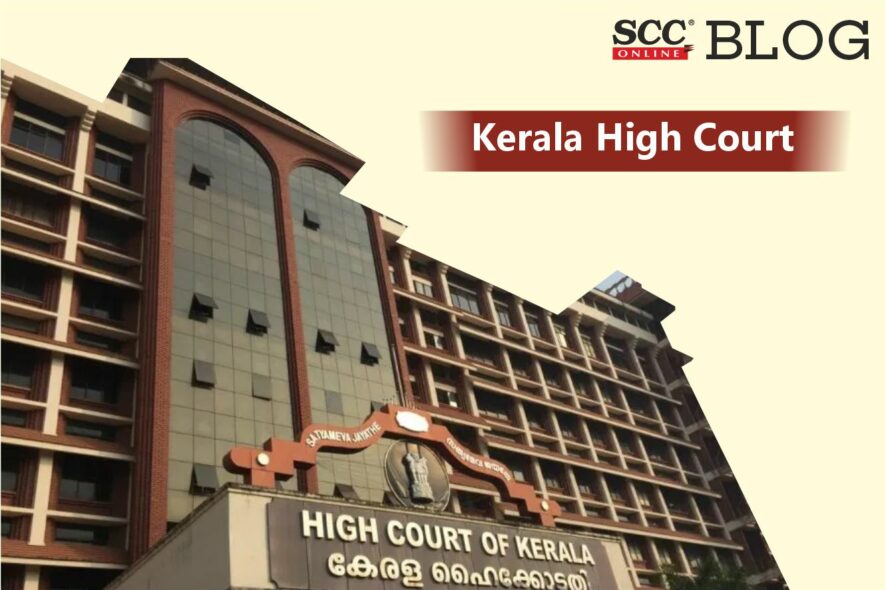Kerala High Court: In a case relating to a complaint for offences under Sections 143, 147, 149 and 283 of the Penal Code, 1860 and Sections 38 r/w section 52 of the Kerala Police Act, 1960, for formation of Statewide human chain by the Communist Party of India to compel the Union Government to withdraw from the Association of Southeast Asian Nations (ASEAN) free trade agreement, Bechu Kurian Thomas, J has observed that the continuance of proceedings against the petitioners is an abuse of the process of court as the conduct alleged against the petitioners do not satisfy the ingredients of Section 141 of IPC, and when the allegations do not satisfy the ingredients of unlawful assembly, the offences under Sections 143, 147 and 149 of IPC cannot be attracted. Further in the absence of any allegation against petitioners, proceeding in a criminal action for the offence under Section 283 IPC is an abuse of the process of law.
The Court referred to Section 141 of IPC and observed that it indicates that every assembly of five or more persons by itself will not become an unlawful assembly, as an assembly of five or more people will become unlawful only when they have a common object, and the said object falls within the categories mentioned under Section 141 of IPC. When the common object of the assembly does not fall within any of the five categories specified in Section 141 even if the number of the assembly is more than five, the act alleged will not attract the offence of unlawful assembly. Thus, the essence of the offence of unlawful assembly lies in the consensus of purpose of more than five persons to commit an act specified in 141 of IPC.
The Court referred to the decision in Aravindan v. State of Kerala, 1983 SCC OnLine Ker 26, wherein it was observed that “the mere fact that an assembly consists of five or more persons is likely to disturb the public peace does not prove that the common object of the assembly is one of those enumerated in the Section, but Section 151 of Penal Code may come in and that the common object must be an immediate one and not to be carried out at some future time”.
The Court, after examining the complaint, observed that it is seen that though the complainant alleges that more than five persons had assembled, there is no mention of any of the ingredients that can attract any one of the five facets described as ‘first to fifth’ of Section 141 of IPC. The respondent has no case that the petitioner had a common object to commit any of the offences specified in Section 141 of IPC, and the assembly was formed only to express their protest against the Government signing an agreement with the ASEAN countries. Further, no criminal force or show of criminal force is alleged to have been committed by any member of the assembly, and as Section 141 of IPC significantly uses the words ‘criminal force’ in most of the provision, thus, a protest or an assembly of persons without any criminal force or show of criminal force would not make the assembly unlawful.
It was also observed that an assembly of more than five persons gathered for a peaceful protest cannot fall within the term unlawful assembly, as the right to protest peaceably is an essential ingredient of the fundamental right under Article 19(1)(a) and 19(1)(b) of the Constitution of India. Thus, an assembly of persons without arms or without criminal force or without any intent to commit an offence can only be a lawful assembly, which is not prohibited. Further, if every assembly is regarded as offensive conduct, then the right to freedom of speech and expression and the right to form an assembly guaranteed under the Constitution will be a dead letter.
The Court also observed that the right to dissent is the core of every democratic establishment, and the constitutional scheme of our country embodies the salutary principle of the right to dissent. Further, merely because the dissent is not acceptable to the majority, is not a reason to initiate criminal action unless the dissent was coupled with violent, disorderly or damaging conduct by any member of the assembly.
The Court viewed that there is no allegation of any criminal force used or presence of any common object for committing an offence or that the human chain lasted indefinitely. There is also no case where there was any inconvenience or obstruction to the public for an extended period. Thus, the conduct alleged against the petitioners does not satisfy the ingredients of Section 141 of IPC, and when the allegations do not satisfy the ingredients of unlawful assembly, the offences under Sections 143, 147 and 149 IPC cannot be attracted. Therefore, petitioners cannot be prosecuted for the aforesaid offences.
Moreover, the Court applied the principle in Section 95 IPC that embodies the principle of ‘deminimis non curat lex’ meaning that “law does not consider trifles and viewed even if it is assumed that any slight obstruction was caused to the public, the same was only a trifle, as this is evident from the fact that no one other than the complainant had any grievance. Thus, the continuance of proceedings against the petitioners is an abuse of the process of court. Therefore, petitioners cannot be prosecuted for the aforesaid offences.
[Prakash Karat v. State of Kerala, 2022 SCC OnLine Ker 5243, decided on 13.10.2022]
Advocates who appeared in this case :
For Petitioners: Advocate Alan Papali
Senior Advocate M.K. Damodaran
Advocate Gilbert George Correya
Advocate Sojan Micheal
Advocate. P.K. Vijayamohanan
For Respondents
Senior Director General of Prosecution T.A Shaji
Senior Government Pleader P.Narayanan
Senior Government Pleader Sajju.S.






